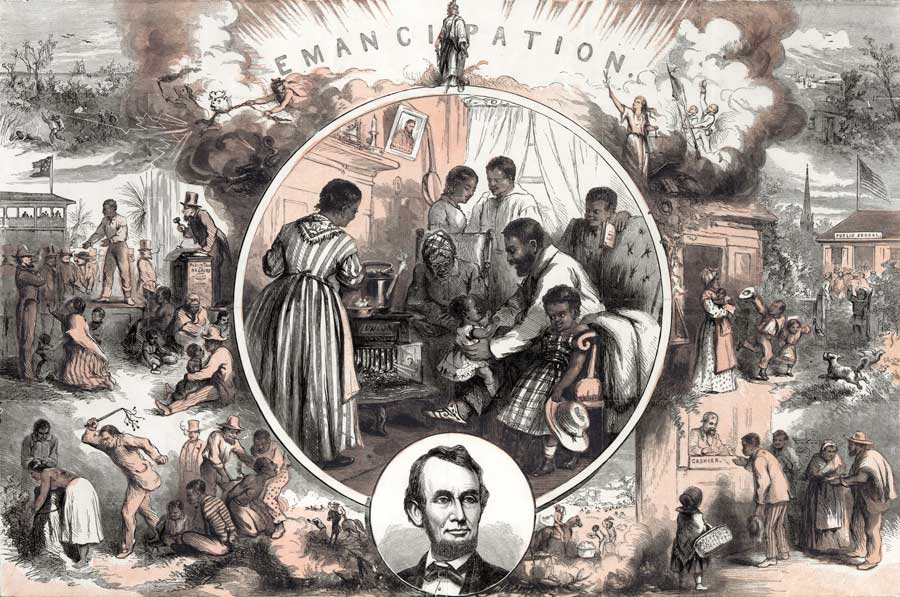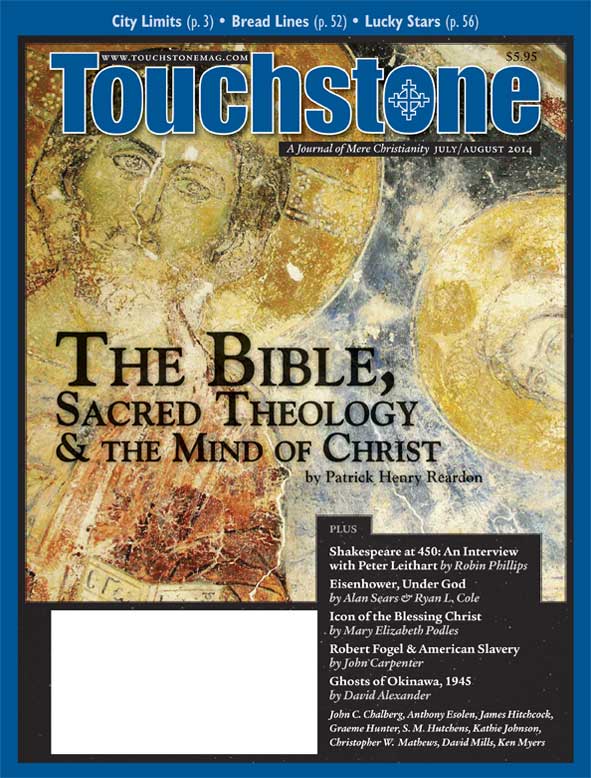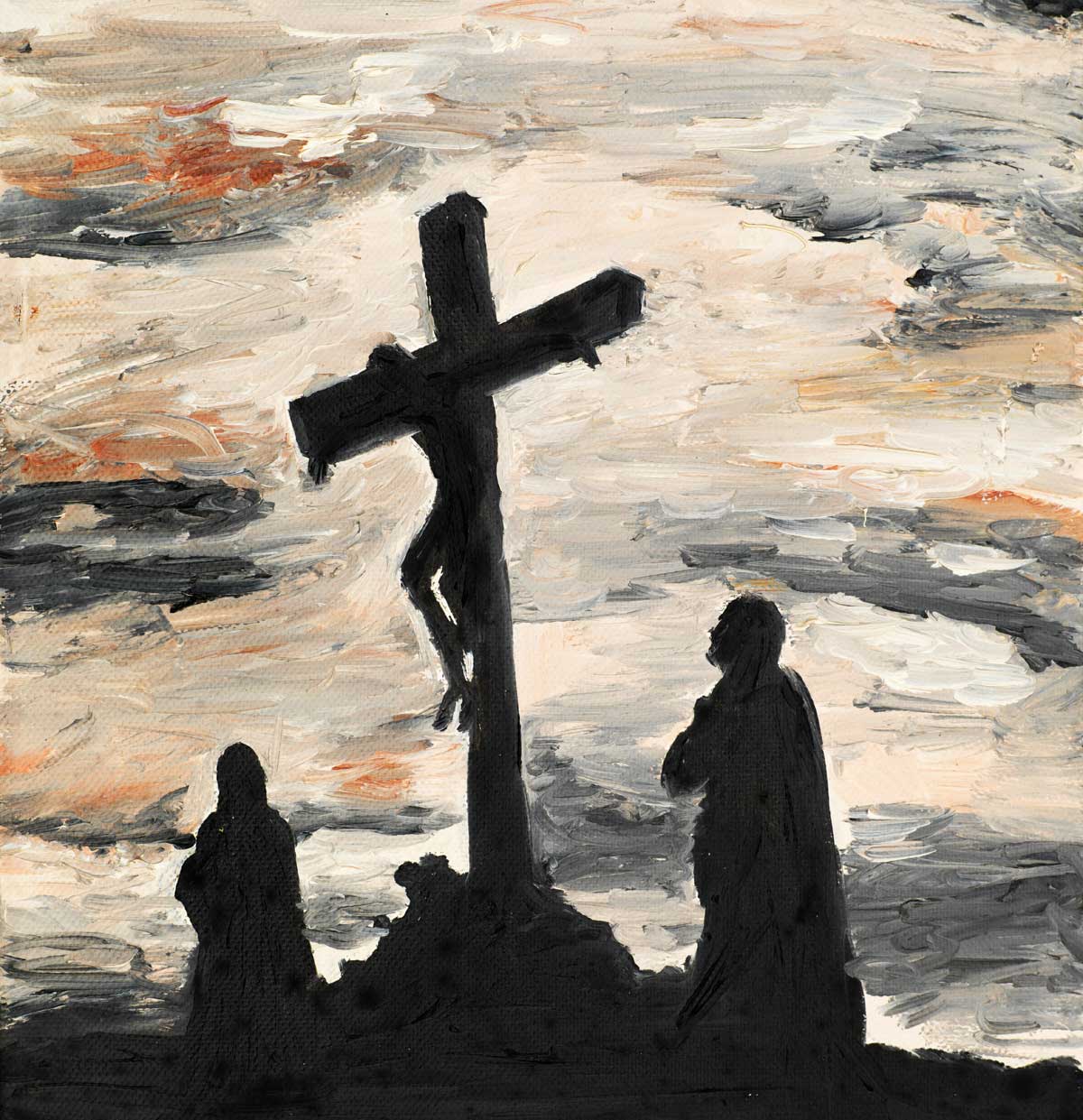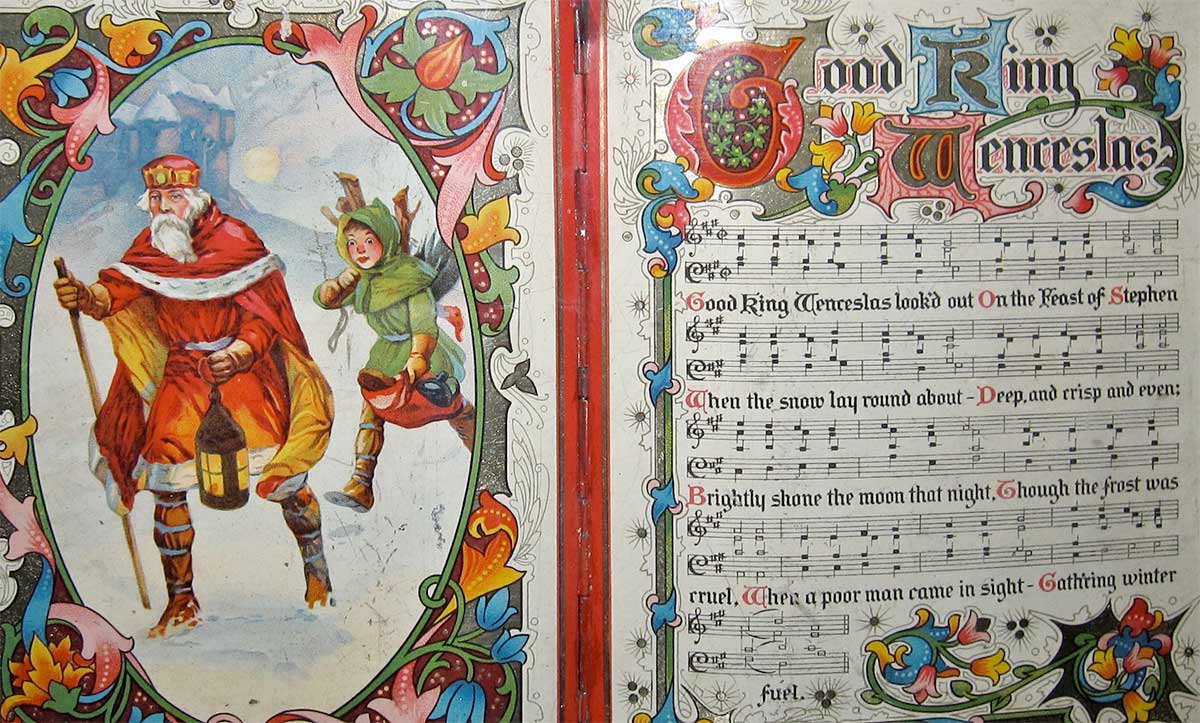View
An Unexpected Apologist
John Carpenter on Robert W. Fogel & the Christian Legacy on Slavery
Few Christians took notice when Robert W. Fogel passed away on June 11 last year. Too bad, really, because in this age when Christians are routinely labeled bigots and accused of retarding the march of history, they might have recognized in Fogel's passing the loss of a valued apologist. The fact is that Fogel, an expert in economic history—Nobel Prize in 1993—credited Christians with the abolition of slavery in America. The force of his argument, initially advanced in Time on the Cross (1974), was widely misconstrued at the time and is largely unknown by Christians today. Perhaps his recent departure provides the occasion for its more mature review.
Fogel was born in 1922 in New York City, the son of Russian Jewish immigrants. At Cornell University he became president of the campus branch of American Youth for Democracy, a Communist group, and afterwards he spent eight years as a professional organizer for the Communist Party. In 1949 he married Enid Cassandra Morgan, an African-American woman, and resultantly felt the brunt of societal disapproval of interracial marriages. Eventually, he rejected Communism, finding that the data didn't support it.
Fogel pioneered an approach to economic history called "cliometrics," which relied on empirical data, that is, on measureable, documented evidence such as government records or business ledgers of plantations, to reach conclusions. He used this method most notably to document slave life and the profitability of slavery in the American South.
Fogel's Controversial Findings
Fogel came to some unconventional findings about slavery, which he promulgated in Time on the Cross. For example, he found that plantations, with their "gang system" division of labor, created a system of agriculture that had the efficiency of an assembly line. This made Southern slavery fantastically profitable: Fogel calculated that Southern slave labor was 36 percent more efficient than the free labor on Northern farms, despite the fact that the soil in the North was generally better. In the decade prior to the Civil War, the South's economy grew at twice the rate as the North's.

More controversially, Fogel also found that most Southern slaves were treated well by their masters, with the average slave taking in more calories and living longer than the average Northern white city-dweller. By a purely materialistic measure, then, the South's slave-based economy was flourishing.
Because of Fogel's economically positive findings about slavery, some critics misunderstood Time on the Cross and attacked it as a defense of slavery. But Fogel understood slavery to be an evil institution despite its profitability because it relied on unrestrained domination. One group of people was allowed to determine, in a God-like fashion, the fate of another group of people. Thus, Fogel saw slavery as a "time on the Cross" for slaves.
But Fogel also saw that principled opposition to slavery could not come from economics. Economists usually believe that if something is profitable, it is good. Opposition had to come from a system of morality that went beyond material profitability, and Fogel saw that it was Christians who provided that morality. Christians believed that slavery had to end because it offended heaven. They provided the otherworldly ethics that ended a system that worked in this world. And therefore, Fogel argued, America owes an enormous debt to them.
Fogel Himself Surprised
I knew Professor Fogel personally, having first been a student of his and later his teaching assistant at the University of Chicago. He once mentioned to me that, despite having been a professor at some of America's leading universities, he had had no idea of the moral revolution wrought by Christianity until he studied the slavery issue for himself. But once having done so, he concluded that if Christian abolitionists had not turned Northern opinion so decisively against slavery when they did, the South would have continued to grow faster than the rest of the country and would likely have adapted slavery to industrialization. If civil war had not broken out until after industrialization, the South would probably have been unconquerable and have spread slavery indefinitely, perhaps until this day.
A self-confessed secular Jew, Fogel said he was amazed to discover that Christians were the ones to be credited with ending slavery. He could not escape the conclusion that it was their moral force, rooted in Puritanism, that brought about its end.
Today, increasingly vocal and vitriolic anti-Christian activists actually indict Christianity for history's greatest atrocities, including American slavery. Many Christians aren't knowledgeable enough to respond effectively. They feel ashamed and often offer a meek apology, implicitly pleading guilty to the charge. All because they don't know what Fogel demonstrated: Christians have a great legacy on this issue. They just aren't aware of it.
The Opposite Misinterpretation
Some commentators have misinterpreted Fogel's findings in the other direction. Douglas Wilson's booklet, "Southern Slavery: As It Was," co-written with Steven Wilkins in 1996, is partly based on Fogel's Time on the Cross. But Wilson concluded that Fogel showed that slavery wasn't so bad after all, and that the U.S. could have waited patiently to solve the slavery problem peacefully. The Civil War, he says, was unnecessary. He believes this so strongly that he calls himself a "paleo-Confederate."
Other historians have called Wilson's arguments "obscene" and "ridiculous," and Sean M. Quinlan and William L. Ramsey of the University of Idaho have asserted that they contain "almost no historical evidence." But since Wilson relies heavily on Time on the Cross, his conclusions can't be dismissed so summarily.
Nor can academics dismiss Fogel's own research as "discredited." After Time on the Cross provoked a firestorm of criticism, Fogel engaged in further empirical research on the issue. His later findings, which he published in the book Without Consent or Contract, only bolstered his original conclusions. Indeed, so decisively was he seen to have won the debate that he was awarded the 1993 Nobel Prize for Economics.
So Wilson could not have chosen a better source, but regrettably, he either did not fully understand Fogel or only cherry-picked from his research, and thus came to the opposite conclusions as did Fogel about slavery. While it's true that Fogel found that slavery wasn't as harsh as some abolitionists had portrayed it, he also found that slavery was on the ascendancy prior to the war. It wasn't going away without a fight.
Our Debt to Fogel
Christians ended slavery; it is one of their greatest social, material, and moral contributions to the world. It is ironic that a former Communist and secular Jew became the historian to demonstrate this, and thereby show how Christianity has been good for the world. For that, we owe Robert Fogel a debt of gratitude and an honored place in our memory. •
bulk subscriptions
Order Touchstone subscriptions in bulk and save $10 per sub! Each subscription includes 6 issues of Touchstone plus full online access to touchstonemag.com—including archives, videos, and pdf downloads of recent issues for only $29.95 each! Great for churches or study groups.
Transactions will be processed on a secure server.
more on Christianity from the online archives
more from the online archives

28.2—March/April 2015
Man, Woman & the Mystery of Christ
An Evangelical Protestant Perspective by Russell D. Moore
calling all readers
Please Donate
"There are magazines worth reading but few worth saving . . . Touchstone is just such a magazine."
—Alice von Hildebrand
"Here we do not concede one square millimeter of territory to falsehood, folly, contemporary sentimentality, or fashion. We speak the truth, and let God be our judge. . . . Touchstone is the one committedly Christian conservative journal."
—Anthony Esolen, Touchstone senior editor














